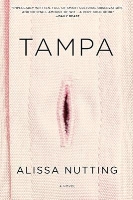5 stars. This book is the most beautiful, breathtaking gut punch. It's a piece of literary genius; philosophical and compelling. It made me feel small - in a good way, like when I visit New York or Tokyo or stand next to the ocean. I was captivated, almost against my will, and I can't wait to read it again and again and again.
Allow me to write a longer summary than usual. It will help me sort through the plot and the themes. SPOILERS TO FOLLOW.
Cloud Atlas collects the stories of six individuals and presents them in a puzzle box. The first story, THE PACIFIC JOURNAL OF ADAM EWING, takes place in the mid-1800s and follows a notary traveling from the Chatham Isles to California. HIs narrative ends abruptly and the book shifts to LETTERS FROM ZEDELGHEM, a collection of letters from a bisexual composer to his lover, reporting on his many amusing exploits of the 1930s. This composer encounters a copy of Adam Ewing's journal and is fascinated.
The book then shifts again to HALF-LIVES, THE FIRST LUISA REY MYSTERY, a pulpy thriller about a feisty journalist and her quest to expose a corporation for playing fast and loose with the safety precautions on their nuclear reactor. Rey, in the midst of dodging 1970s clichés and cliffhangers, comes across the composer's letters from the previous section and is desperate to find the rest.
Falling into place, yet? I know, it's great.
Leaving Luisa's fate unknown, we shift to modern times to read THE GHASTLY ORDEAL OF TIMOTHY CAVENDISH, the memoir of an elderly publisher who gets trapped in a nursing home against his will (and ... is sent the first half of a manuscript about Luisa Rey). Cavendish is colorful and - honestly, a little grotesque - but we root for him all the same.
Number five reveals AN ORISON OF SONMI-451, the transcript of an interview with a clone from the far future. Sonmi has "ascended" - she has taught herself to think and feel, and in her own transcendent way attempts to right the wrongs she sees in the world. She also enjoys the first half of the movie version of Cavendish's ghastly ordeal.
Lastly we read SLOOSHA'S CROSSIN' AN' EV'RYTHIN' AFTER. Civilization has fallen. The human population has fractured into isolated tribes living off the earth and avoiding savages. Zachry, a goatherder, worships Sonmi like a god, though he and his people don't understand her origins or the true context of her declarations.
And then we switch back to Sonmi, who declares in the last moment of her interview that she'd like to watch the rest of the movie about Timothy Cavendish. Cavendish escapes his nursing home prison and reads the second half of the manuscript about Luisa Rey. Luisa survives several ridiculous threats, including a hit man, a bombing and a shootout on a boat to obtain the rest of the composer's letters. The composer, in the last moments of his life, reads the final chapters of Adam Ewing's journal, who closes with “My life amounts to no more than one drop in a limitless ocean. Yet what is any ocean, but a multitude of drops?”
There is, admittedly, a ton to unpack here. My observations and thoughts are as follows:
First - David Mitchell can write anything he wants. Each segment of this book is carefully crafted and completely different. Each character has a distinguishable voice (in some cases, literally) - which is so rare! He emulates styles and forges his own. He can be irritating, and meta as hell, but Cloud Atlas is so fucking impressive. I would've loved to study this in college just so I could discuss and understand everything about it from the word choice to the philosophical questions to the structure.
Second - theeeeeeeeeemes. Theme city. Themes everywhere, as far as the eye can see. Mitchell infuses his work with explorations of the primitive vs. the civilized; nature vs. nurture; sacrifice; power; slavery; mortality ... and all of them - for the most part - bonk you on the head: "Our lives are not our own. We are bound to others, past and present, and by each crime and every kindness, we birth our future." "Unlimited power in the hands of limited people always leads to cruelty." Etc. Yeah, there isn't a lot of subtlety here. But it's not bad. It's just heavy and philosophical and leaves you full of joy and sadness at the same time.
Cloud Atlas isn't perfect, I know. It requires commitment and patience and a high tolerance for tricky dialogue, and at times is a little too clever for its own good. It was a rewarding read for me, though, almost comforting. I think I understand the questions it asks and tries to answer. I can't wait to read it again and pull out the details I missed - and to just fall into that world again, even for a moment. After all, “Books don't offer real escape, but they can stop a mind scratching itself raw.”
Cloud Atlas on: Amazon | Goodreads





